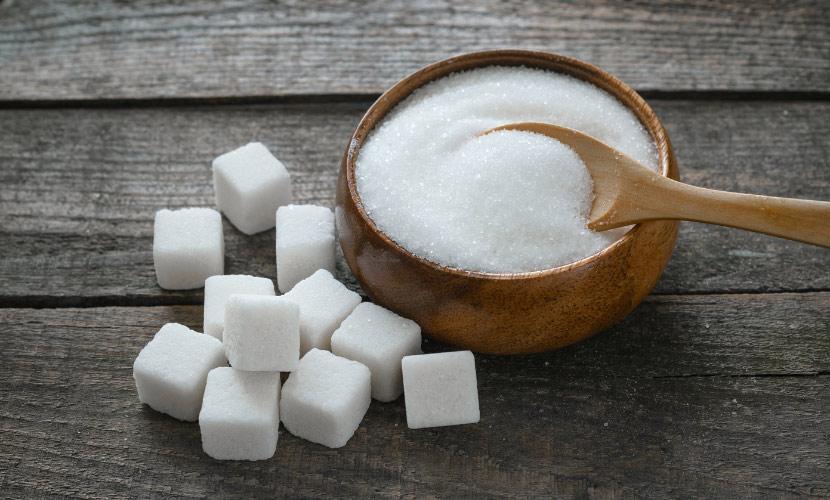🏆 As seen and loved on Shark Tank Dubai 🏆

Juicing Diet for Weight Loss
A Juice-based Diet for Losing Weight
Juices are a quick and easy method to supplement your diet with additional nutrients. They have recently become popular among dieters. People even say that substituting liquids for solid foods aids in weight reduction.
The juicing diet is becoming increasingly popular, owing primarily to beverage industry marketing and social media influence. The efficacy of juicing, on the other hand, is still debatable. Nutritionists and health experts recommend avoiding juicing diet for a long time.
What is Juicing?
Juicing is the squeezing of liquid from fruits and vegetables and the separation of solids. You may extract the juice using a variety of equipment, or you can squeeze it out manually. Markets provide a broad range of pre-made juices that may be stored for an extended period.
Many companies sell pet bottles of fruit and vegetable juices, available at most supermarkets. Skin, seeds, and pulp are not present in the juice extracted. It is, nevertheless, high in minerals and antioxidants.
The liver and kidneys are naturally built to remove toxins from our bodies. However, our system might get sluggish at times. The presence of impurities or health conditions in the liver or kidney might cause this slow process. Juices can be utilized for cleansing and detoxifying during this point.
Juice diet for weight loss

Juices are also used for weight loss and as nutritional supplements while following a restrictive diet and are often part of healthy meal plans . Depending on your objectives, you can try a variety of juicing diets. A juice fast is the most popular, in which participants substitute solid meals with liquids.
The goal is to avoid eating solids while yet getting enough nutrients and minerals. Juicing diets are deficient in calories and contain almost no carbohydrates, fats, or proteins.
Individuals and their weight loss objectives mainly determine the length of these diets. The majority of starters only do it for a few hours, while some continue it for days.
Can juicing help you lose weight?Can juicing help you lose weight?
The effectiveness of juice diets is yet to be studied in much detail. Most beverage companies boast that their products are supported by extensive research, yet most of them only supply what the market dictates.
Many people who have tried the juice diet swear by it and believe that it helps them lose weight quickly. It is easy to comprehend the science underlying it. A juice diet drastically reduces daily calorie consumption. According to research, the juice diet contains around 600-1000 calories each day owing to the lack of solid meals. As a result, the restricted juicing diet aids in weight loss.
Juicing also helps in increasing the gut bacteria associated with weight loss. Furthermore, fruits and vegetables have the highest levels of antioxidants, which aid in eliminating free radicals from the body. Despite that, doctors suggest eating whole fruits and vegetables provides the same benefits as well.
Health experts say the primary benefit of juicing is the confidence boost that you get out of a lower number on the weight scale. It brings a positive change in the mind of people who are trying to lose weight. However, quick weight reduction does not imply fat loss; you lose water primarily on a juice diet.
Pros of Juicing Diet
Juicing diet has numerous advantages for those who are attempting to reduce weight. Individuals go on a juice fast for one, two, or three days. Some of the benefits of a juicing diet are as follows.
Increased motivation
The initial weight loss that you experience because of a juice diet is water loss. Once you decrease the number of carbs you consume, the body starts using the stored glycogen. The body also loses approx 3 ml of water attached to 1 gm of glycogen along with it.
The instant weight loss provides a much-needed confidence boost.
Positive metabolic effect
A juice diet for a couple of days can have a positive impact on your metabolism. Initially, triglycerides get in action to provide energy to compensate for the deficit caused by juicing.
The effects of a juicing diet that lasts for 2-3 days can be seen for about a week after fasting.
Improved Gut Health
The juice diet high in fruits and a variety of vegetables improves your gut health. Just three days of this meal can alter your gut microbiome.
With better gut health, you may have a better sense of well-being.
High quantity of Vitamins and Minerals Consumption
Juices are high in micronutrients such as vitamins, minerals, and essential phytochemicals. One can combine all of the greens in one glass, which sounds like a dream. Vegetable juices can help those who aren't fond of veggies.
Experts claim that food grown now has significantly less nutritional value than food produced in the past. Juices can improve such dietary deficiencies.
Weight loss
A juice diet ensures low-calorie intake and cleansing of the digestive system. If you plan your juicing diet well, you may see your weight drop relatively quickly. The restricted juice diet also ensures that you do not consume empty calories like refined sugar or processed carbs.
How fast can you expect to lose weight with a juice diet? Some people claim they have lost 800-1000 gm of weight per day while on this diet. However, a prolonged juice diet may have a reverse diet effect on your system.
Cons of Juicing Diet
Despite the fast and quick weight loss results, many dieters struggle to continue on a juice diet. Eve experts completely dismiss the juice diet for weight loss apart from detoxification purposes. The primary reason for this is, it is not a sustainable way to lose weight.
An exclusive diet based on only fruits and vegetable juices comes along with some health concerns. You must understand the limitations of juicing diet and why it is not recommended to all or to follow over a long period.
Too much sugar

Your ingredients decide whether the juice diet is going to be beneficial or have reverse effects. Sometimes people sweeten their fruit juices with added sugar. Your ingredients decide whether the juice diet is going to be beneficial or have reverse effects. Sometimes people sweeten their fruit juices with added sugar.
Most sweet fruits are naturally high in sugar like fructose; when separated from the fibre, the system absorbs it much faster. It may cause insulin imbalance. Moreover, it makes a person feel hungrier much quicker.
Lack of roughage
Roughage is an essential component of a well-balanced diet. When you consume fruits and vegetables in whole form, you get crucial dietary fibres.
Juices are devoid of fibres, which may harm your digestion, as you are missing out on your dosage of fibres.
Lack of nutrients
While juices are the best way to consume many vital micronutrients, they leave out a few macronutrients, healthy fats, protein, and carbohydrates. These macros are essential for weight loss and optimal health.
Prolonged juicing can also cause sodium deficiency. Low sodium can cause problems with nerve conduction and cardiac rhythm.
Thus, you must add some salt to your juices to compensate for the sodium loss. Ideally, a quarter of a teaspoon of salt is recommended for a day. It is advisable to consult your dietician or doctor before you start juicing diet if you have health concerns related to neurology, kidney, or heart.
Loss of muscle mass
Juices contain no or very little protein. A lack of protein in your diet may lead to muscle mass loss. Low protein consumption also causes your metabolism to slow down.
Once you've finished your juice cleanse, you'll need to undertake some resistance workouts to fight this problem. The exercises might assist you in regaining muscle mass lost as a result of the juicing diet.
Constant hunger
Juices aren't very filling. They are quickly absorbed and leave you hungry for the rest of the day. The primary cause of persistent hunger is a lack of fibre. Fibre is the substance that makes you feel full after a meal.
Protein and fat are also required to induce satiety and contribute to the sensation of being full. And that is why when you're on a juice cleanse, you're so hungry all the time.
Bottom line
Juicing diets are best when you intend to look great on an upcoming beach holiday or squeeze into a slightly tight-fitted party dress. If you are looking for more sustainable weight loss, you must practice something that has lasting changes.
Juice diets can never be a permanent way of losing weight. Most people regain weight once they return to their regular diet.
As you can see, following a juicing diet for an extended length of time is not recommended. Macros are vital for immune function, brain health, and weight management. The lack of fats also causes a deficiency of omega-3 fatty acids.
If you have never tried a juice diet before, we recommend you consult your nutritionists. Juice diets are known to cause extreme calorie deficit and electrolyte deficiency. For a sustainable diet and weight loss meal plan in Dubai for you, connect with our nutritionists.
Reach out to start your fitness journey with us!
Meal Plans
Delivery Details
Legal Information
© 2020-2026 VMeals. All rights reserved. VMeals™ is a trademark of Flip Side Restaurant and Cafe L.L.C
We accept
